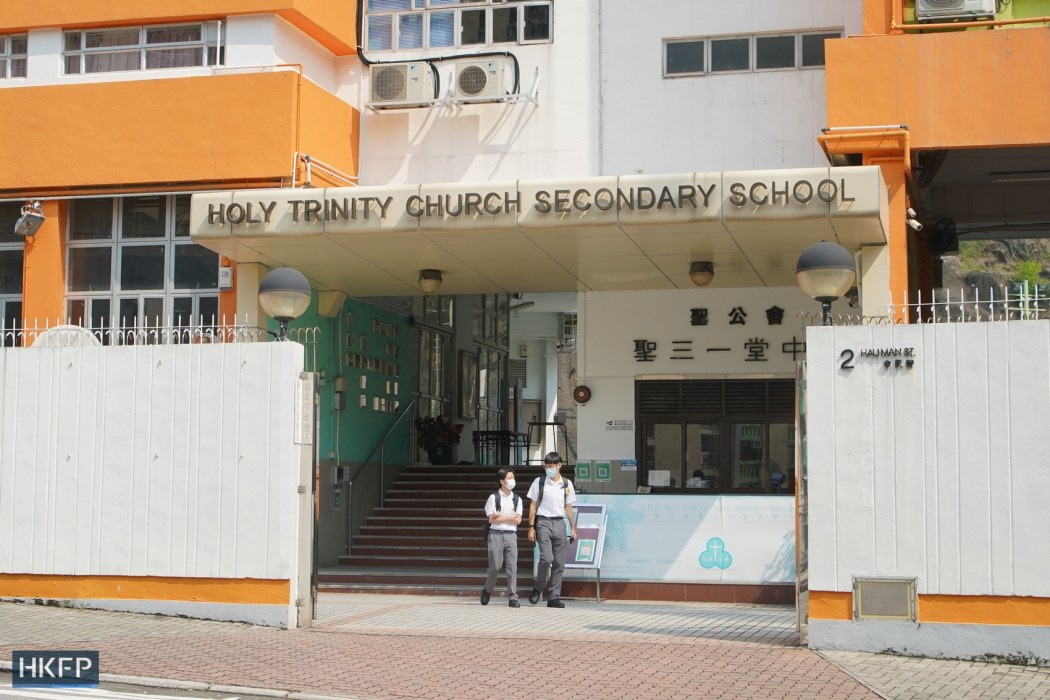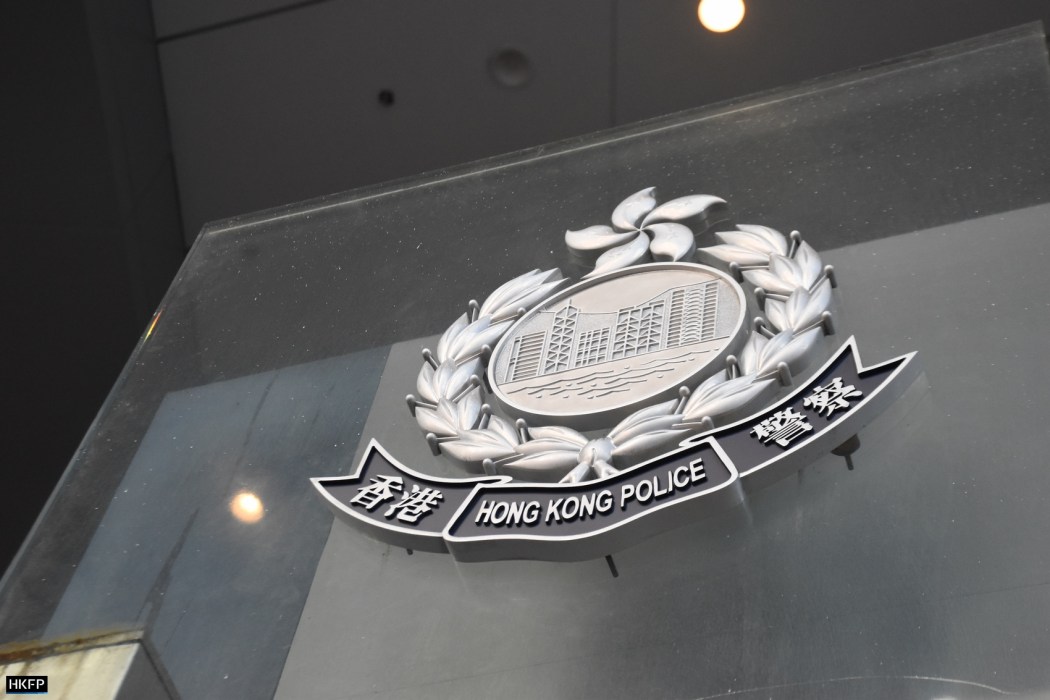Hong Kong police have suggested that schools install CCTV cameras on campus to enhance security and prevent crime.

A new police website called SafeCity.HK lists “school security tips” included the fitting of CCTV cameras to monitor corridors, staircases, reception areas and classrooms.
“The security of schools is very important. Take care of the safety of young students!” the website said, adding that schools should also install electric fences and infrared motion sensors.
Launched last week, the SafeCity.HK website provides a “one-stop hub of the most updated crime prevention tips and knowledge,” according to a government press release. It also lists pointers for improving security in hotels, residential areas and retail spaces.
HKFP has reached out to the Education Bureau for comment.

Chu Kwok-keung, a Legislative Councillor representing the education sector, said it would be appropriate for schools to consider setting up CCTV cameras based on their circumstances, Ming Pao reported. For example, schools with more incidents of student behavioural problems could install security cameras in corridors to protect students and teachers, he added.
But if schools were to install security cameras in classrooms, Chu said he believed parents would have to be consulted beforehand.
In 2021, two primary schools were found to have placed CCTV cameras in classrooms without parents’ knowledge, possibly violating the city’s privacy ordinance. Then-education secretary Kevin Yeung said at the time that authorities were looking into the incidents, while one of the schools, Good Hope School, said the cameras were “inbuilt” in the campus before the school moved in and that they had never been in use.
According to the police, crime committed by those aged between 10 and 20 fell by around 8 per cent last year compared to the previous year.

Speaking on an RTHK show on Sunday, police chief Raymond Siu said officers would promote national security education in schools. He added that authorities were considering mobilising more “stakeholders” to promote national security education. It was saddening that young people had been sentenced under the security legislation.
In June 2020, Beijing inserted national security legislation directly into Hong Kong’s mini-constitution – bypassing the local legislature – following a year of pro-democracy protests and unrest. It criminalised subversion, secession, collusion with foreign forces and terrorist acts, which were broadly defined to include disruption to transport and other infrastructure.
The move gave police sweeping new powers, alarming democrats, civil society groups and trade partners, as such laws have been used broadly to silence and punish dissidents in China. However, the authorities say it has restored stability and peace to the city.
Support HKFP | Policies & Ethics | Error/typo? | Contact Us | Newsletter | Transparency & Annual Report | Apps
Help safeguard press freedom & keep HKFP free for all readers by supporting our team

HKFP has an impartial stance, transparent funding, and balanced coverage guided by an Ethics Code and Corrections Policy.
Support press freedom & help us surpass 1,000 monthly Patrons: 100% independent, governed by an ethics code & not-for-profit.










